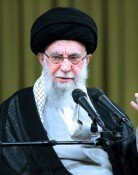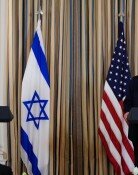[Editorial] Helping the Working Class
[Editorial] Helping the Working Class
Posted September. 23, 2009 07:24,
The Health, Welfare and Family Affairs Ministry will offer one trillion won (830 million dollars) in collateralized loans to 200,000 low-income families earning a combined 200 million won (174,800 dollars) or less through the end of the year. To that end, the ministry has secured 63.9 billion won (53 million dollars) in extra budget. Many low-income households hope to secure such loans at interest of just three percent. Yet only 2,700 of such loans worth a combined 26.1 billion won (21.6 million dollars) were recorded between May to August, or just 1.4 percent of the projected cases and 2.6 percent of the projected amount. Income declined more among low-income earners due to the rich getting richer and the poor getting poorer, but loans meant to support the working class are not reaching them.
The working class, which already has collateralized loans, can hardly borrow more money due to the loan-to-value restriction imposed by financial regulators. A tenant whose sole asset is jeonse, or the security deposit for his rental home, went to a savings bank to apply for a loan. He faced a string of requirements, including accompaniment by landlord and submission of the landlords official stamp. Low-income earners who urgently need cash have no choice but to seek alternative sources. As the economy has not adequately recovered, lending conditions for those people need to be eased.
The Korea Workers Compensation and Welfare Service has eased loan eligibility to support the livelihoods of families with jobless breadwinners from registration for job search for two months or longer, to one month or longer. The state agency had secured 273 billion won (230 million dollars) for the loans through the end of the year, but only extended 37 billion won (30 million dollars) in loans through August. As a result, the company eased loan conditions but still requires a couple, including a jobless breadwinner and his wife, to have a combined annual income of 50 million won (42,000 dollars) or less. Hence, the amount of additional loans from the program remains uncertain.
Last year, 10.7 billion won (90 million dollars), or 15.3 percent of the 70 billion won (60 million dollars), earmarked for children of families entitled to basic welfare, remained unused in the Education, Science and Technology Ministrys bank account. The figure is in stark contrast with the 0.3 percent that remained unused from the ministrys budget last year. The ministry said, Many students failed to meet GPA requirements, but the requirement of having 80 out of 100 points is too strict. Such subsidies are designed to support students from lower income households, who must pay for tuition and living expenses on their own, and to prevent them from giving up their college education. So is the GPA requirement even necessary in the first place?
The government has generated a flurry of policies supporting the working class thanks to President Lee Myung-baks orientation toward supporting ordinary people. In many cases, however, such policies conflict with other policies or are incompatible with the situation of the working class and thus lack effectiveness. Frequent on-site inspections are needed as well as resolving the problems of such policies. Achievements in pro-working class policies are ultimately not judged by the number of assistance cases or value, but by how they benefit low income earners and have them struggle less to make a living.




![[단독]폴란드, 韓 해군 최초 잠수함 ‘장보고함’ 무상 양도 안받기로](https://dimg.donga.com/c/138/175/90/1/wps/NEWS/IMAGE/2026/02/27/133437397.1.jpg)


